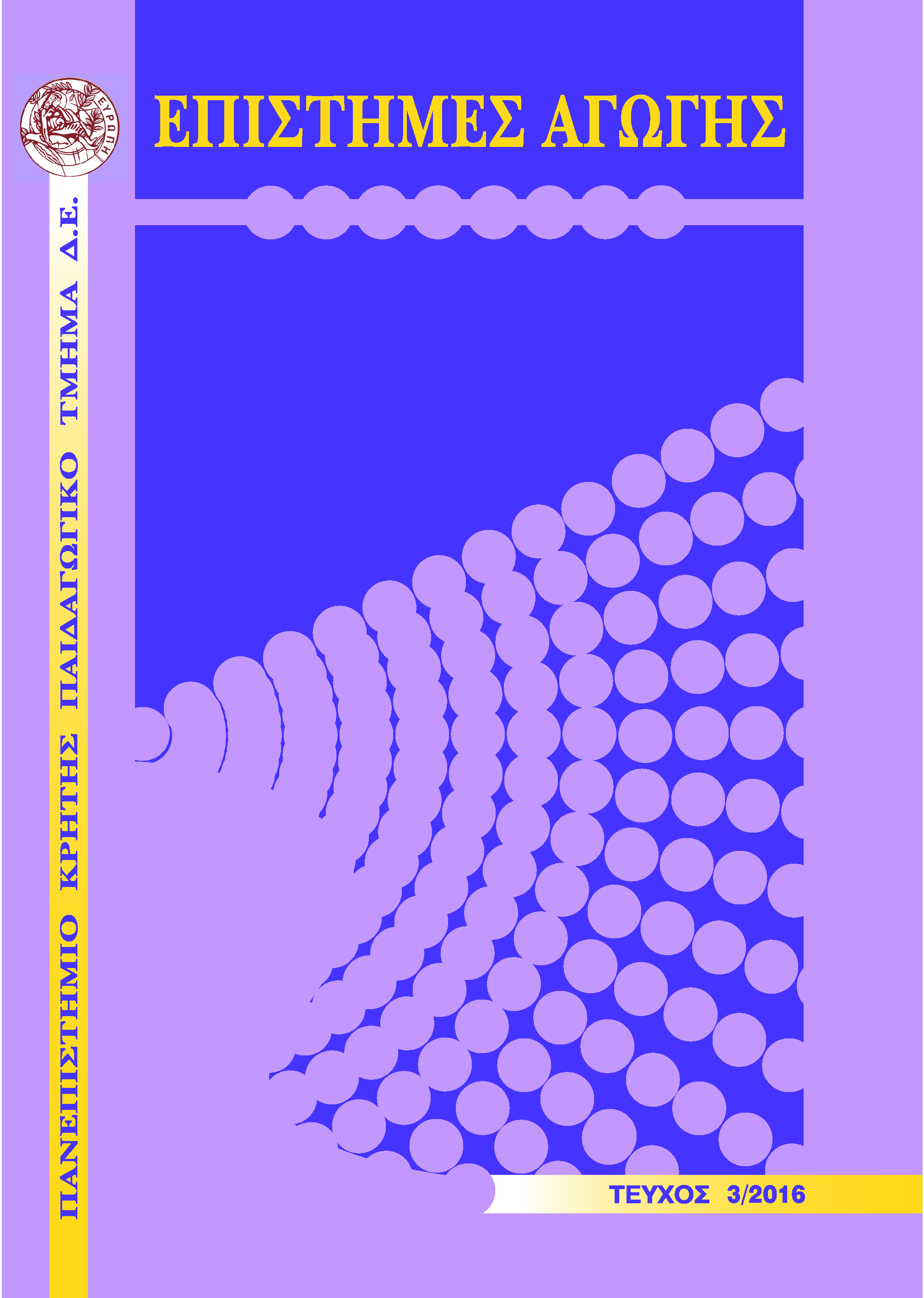Αναδιάρθρωση της Eκπαίδευσης στα Πολιτικά Προγράμματα των Κυβερνήσεων Χ. Τρικούπη: Το Πρόταγμα του Γραμματισμού στην Εκπαιδευτική Κουλτούρα
DOI:
https://doi.org/10.26248/.v2016i3.1193Keywords:
Συνδιδακτική μέθοδος διδασκαλίας, Τρικουπική περίοδος, ηθικο-θρησκευτικός γραμματισμός, εθνικο-πατριωτικός γραμματισμός, εθνικο-αστικός εκσυγχρονισμός, αστικο-κοινωνικός γραμματισμόςAbstract
The present research, historic, social and educational study aims to bring together all necessary data that could shed light on education throughout the period of Ch. Trikoupi’s seven governments. That was a very important period for the Greek state as an attempt to restoration was made along with modernizing and developing a national-urban state in an industrial, economic and cultural developmental framework.
The historic data of that period are remarkably the development of the emerging urban class and the consequent generation of the working class. In addition, the intellectual domination of the national ideology of the Great Idea seems to decline due to the intellectuals’ turn to that specific period and the palpable everyday life and language reality which was the demotic Greek language.
Therefore, education of that period and the concurrent attempts to modernize the Greek school to serve the needs of the urban nation-state and its citizens are the focal points of the present study. In other words, that particular period was scrutinized and data were drawn in order to explain the attempts towards generating an urban-democratic citizen with the corresponding urban-social and moral-religion literacy.
Some important educational political actions of Trikoupi’s governments are underpinned such as sending special supervisors in pioneer action, to collect the first data about education from valid pedagogues. The aim was to make any necessary corrections in the specific domain. The supervisors and pedagogues’ findings about the school system are completely discouraging as it was found to be traditional, memorizing-and-teacher-centered and tremendous changes had to take place.
Thus, attempts focused on new national-social and moral-religious literacy which would be characterized as urban and modern. That change was obvious in the Curriculum of which the teacher becomes the central agent of the national-urban orientation. The coinstructional method is highlighted while the general aim is to create an urban school for all students that would be moral, patriots and urban-democratic.


